Protecting privacy at the ballot box: Secure multiparty computation work could do this and more
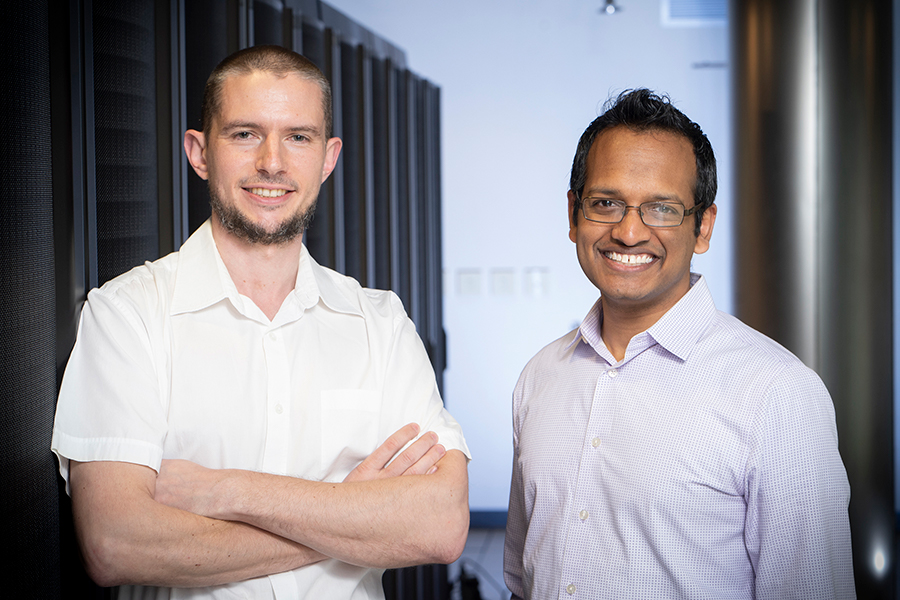
Shortly after the start of the new year, Americans around the nation will start returning to polling stations to vote in presidential primaries. How confident they feel in the voting process could depend on this thing called secure multiparty computation.
Secure multiparty computation allows different sides to work together and solve a problem. It can, for instance, keep bids private during an auction or guarantee privacy during election voting. Most importantly, it allows for trust on social and commercial interactions.
Computer engineering and computer science researchers at Purdue are working together to find the answer.
The project, named High Assurance Compositional Cryptography: Languages and Environments (HACCLE), is working to utilize the areas of security and programming language to solve the questions and hurdles created by current methods.
“The challenge is that there are a wide range of questions that need to be addressed when developing those applications,” said Milind Kulkarni, an associate professor in electrical and computer engineering. “And every time you answer these questions differently, it takes a heroic effort from cryptographic experts to deliver an effective solution.”
Kulkarni said the Purdue researchers are working to take the task of developing secure multiparty applications out of the realm of experts and make it accessible to ordinary programmers.
HACCLE is intended to provide programming languages and the verification, optimization, and execution tools to address the challenges currently encountered. The ultimate goal is to allow programmers to write secure multiparty computation applications with minimum effort and maximum performance.
Additional faculty involved in project research are Tiark Rompf, Roopsha Samanta, Hemanta Maji, Aniket Kate, Christina Garman, Benjamin Delaware and Jeremiah Blocki, all professors in Purdue’s Department of Computer Science. The group is collaborating with Reservoir Labs, a technology and solutions company in New York City.
The project recently was awarded grant funding by the Intelligence Advanced Research Projects Activity, an organization within the Office of the Director of National Intelligence. Through IARPA’s Homomorphic Encryption Computing Techniques with Overhead Reduction, the HACCLE project will receive up to $10.7 million.
“This important research project is significant in its inter-disciplinary collaboration, as it has the potential impact to society,” says Mung Chiang, the John A. Edwardson Dean of Engineering. “We are so excited that Milind Kulkarni and the team is taking the research of secure, trustworthy software systems to the next level.”
Echoing the dean’s sentiments about the project, Dimitri Peroulis, the Michael and Katherine Birck Head of Electrical and Computer Science, says, “It is truly inspiring to see the ambitious goals that Milind Kulkarni and the whole team have set for themselves. In ECE, we celebrate the team’s bold initiative to couple design principles from programming languages and security to advance trust and security in a wide range of practically important situations.”
Currently, a number of issues can come up when two or more parties attempt secure computation. These range from how much do the parties need to communicate to what specific cryptographic techniques will work best to implement this work.
“That’s where the programming languages magic comes in,” Kulkarni said. “Faculty in the programming languages and security areas, both strengths at Purdue, are designing new domain-specific languages to write secure multiparty computation applications.”
Rompf says the technology will cross disciplines like never before.
“This project is especially exciting because it is building bridges in multiple ways,” he said. “First, between programming languages and security research and the respective communities. Second, on campus between the College of Science and the College of Engineering. True progress can only be made by crossing boundaries, and this is why we will be successful.”
Blocki, an assistant professor of computer science who describes himself as an “applied theoretician”, says that he likes to work on problems that are both theoretically deep and can also have practical impact. “As a cryptographer, the HACCLE project clearly clicks both of those boxes. I am especially excited by the challenge of developing more efficient cryptographic building blocks, which can easily be combined to build efficient multi-party computation protocols for more complicated tasks,” he says.
Blocki says the new tools can allow organizations or individuals to cooperate in fundamentally new ways, even if they distrust one another.
“Secure multiparty computation allows our (mutually distrusting) parties to compute any function of their joint data without exposing any confidential data,” he says.
He explains it this way: Say there is a group of people, and the goal is to figure out if there are any romantic pairings. Each person writes in the name of their crush. If two share a crush, both parties will be notified at the end of the protocol. If not, no one will learn of what a person entered.
“As part of the project we are working to improve the core cryptographic primitives that are used in secure multiparty computation. We also want to develop efficient techniques to help compose these primitives in a provably secure way and to estimate the overhead of the final protocol when we combine several different cryptographic primitives,” Blocki said. “Ultimately, the goal is to develop a compiler that allows a developer to specify a protocol in a high-level language and then compile the high level description into secure and efficient multiparty protocol.”
The languages will allow developers to write high-level distributed applications for the secured multiparty computation while specifying what security properties they want to guarantee. HACCLE project research also will provide strong formal guarantees that the computations provide the desired functionality and security.
Garman’s work focuses on the security of deployed cryptographic systems in all of its aspects, including the evaluation of real systems, developing improved tools to design and create those systems “to actually create real, deployable systems,” she said. “Many of the errors we find when analyzing cryptographic systems in practice could have been prevented if designers and software engineers had better tools."
Kate is an applied cryptographer and a privacy researcher whose research builds on and expands applied cryptography and distributed computing to solve security and privacy problems in decentralized environments. “For HACCLE, I’m excited to develop novel multi-party computation cryptographic primitives to solve real-world privacy challenges.”
Samanta says the team “ultimately wants to enable the development of provably correct and secure applications. In order to do this, we will design our domain-specific languages and compilers hand-in-hand with verification tools that can provide formal guarantees about the functionality and security of programs at every stage of compilation.”
Additional Photos:
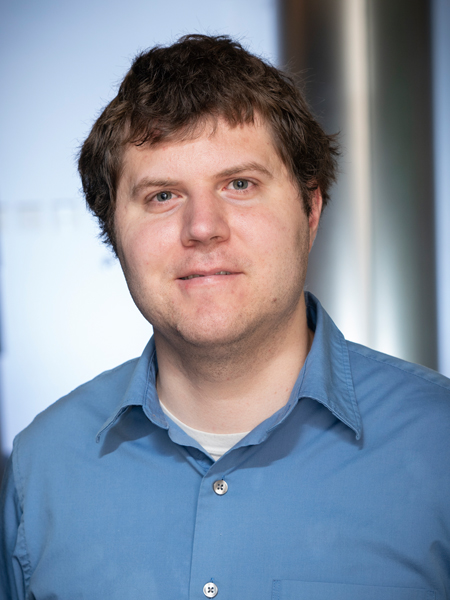

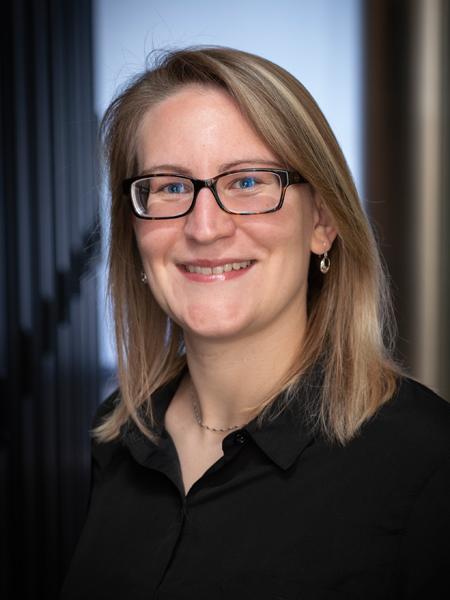
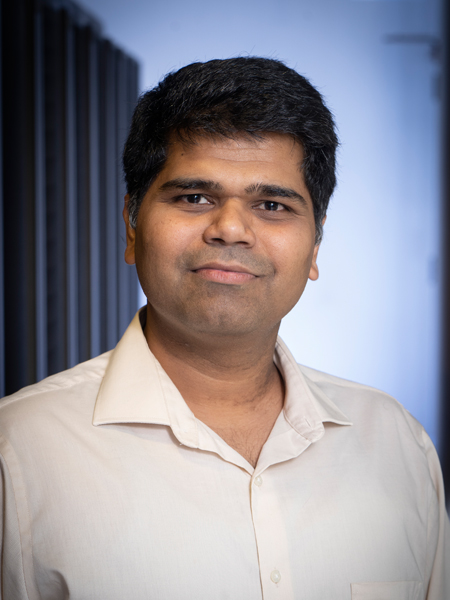
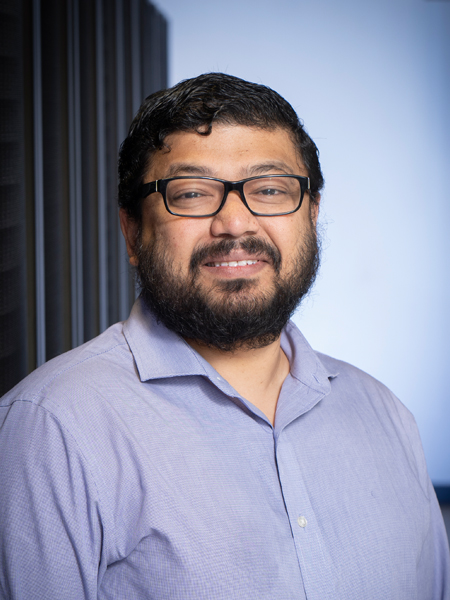
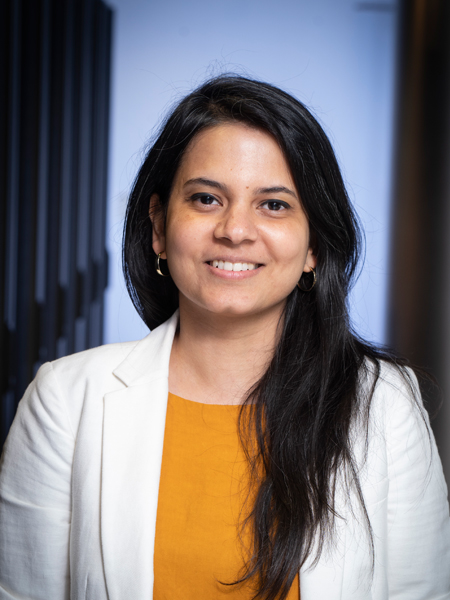
Source: Purdue News Room
